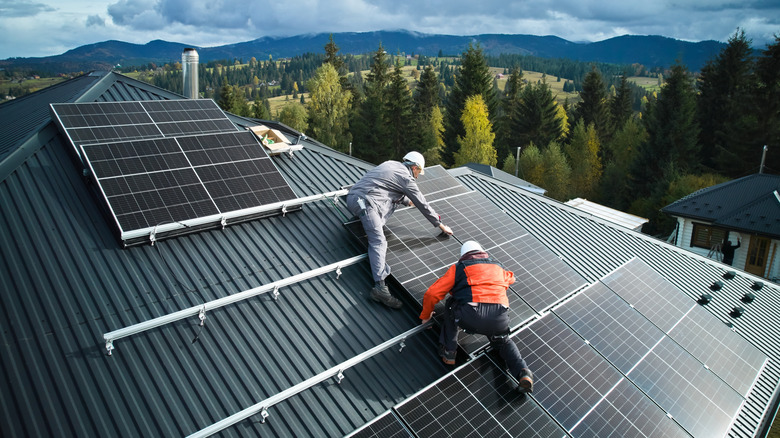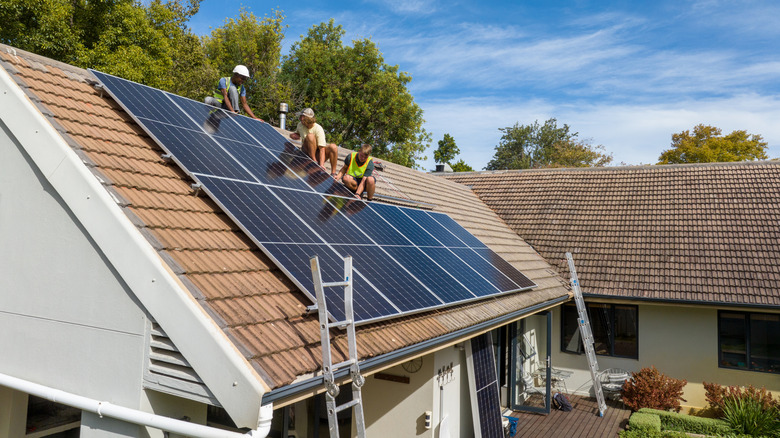Installing Solar Panels May Earn You An Exciting Credit On Your Energy Bill
If you have newly installed solar panels or you're considering them, you have good reason to be excited. Not only could you add value to your property and reduce your electricity costs, but if you produce more electricity via your solar installation, generally known in the industry as a photovoltaic or PV system, you may be able to "sell" it back to your electricity provider. There are some caveats complicating the process, and it's different depending on where in the country you live, but the benefit is worth exploring to see if installing solar panels could earn you an exciting credit on your energy bill.
You may have heard about some people who have agreements with power companies where a residential entity (a homeowner) agrees to "host" a photovoltaic system. In those arrangements, the homeowner signs a Solar Power Purchase Agreement (SPPA) but doesn't own the PV system that collects the electricity. They still pay the energy company, though they don't have to pay for the installation. Alternatively, if you install solar panels on your property (on your roof or a piece of open land that gets abundant sunshine) and front the cost yourself, you own the PV collection system and can use it to generate your own electricity. Many states allow energy consumption (and surplus) to be tracked through net metering or smart meters, which would be tied to your PV system. You would thus see a credit on your energy bill in accordance with energy generation versus usage — just remember that details, like rolling over energy credits, vary from state to state.
That alluring credit isn't the only tangible value, but upfront costs are high
If you don't have solar panels installed at your residence already but you're considering them, you'll need to remember that they're not inexpensive. They're a major investment for your home that typically would run around $24,000 to $36,000 for 20 to 30 panels. You might wonder if you can combine the installation of solar panels with a new roof that you need or had been putting off. It could be a good time to think about some points that our solar power expert wants you to know about solar panels, such as determining the solar potential of your particular property, which you can do by using a calculator like the one available through Freedom Solar Power. You should also examine whether your roof could be obstructed now or in the future, such as by growing trees, given that solar panels are an investment that will last you years.
If you're wondering whether the solar panel tax credit really saves you money, a federal tax break is in effect that provides a 30% tax credit for the installation of a PV system between 2022 and 2032. (Consult a tax professional for advice in your particular situation.) The law states that systems installed in 2033 will receive only a 26% tax credit, which is reduced to 22% the following year, with an expiration in 2035 unless there is further congressional action.

